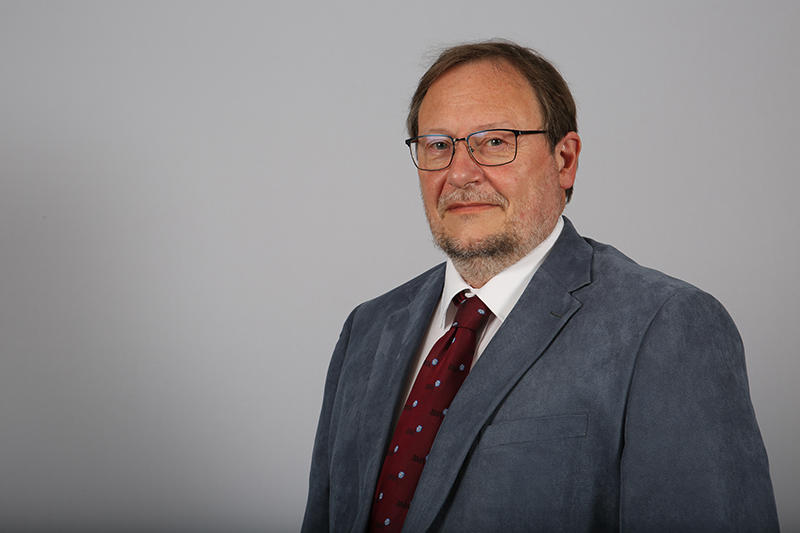 Dr Banfield
Dr Banfield
Preventing the harm of imprisonment, inequity in the criminal justice system and doctors’ role in improving health equity in the prison estate were the focus of the BMA patient liaison group symposium.
Prison doctors, criminal justice advocates and lived-experience speakers came together to discuss how imprisonment affects wellbeing, presents barriers to care and exacerbates deeply rooted health inequalities, particularly in relation to the discreet needs of women, as part of the PLG’s annual symposium event on 26 April.
Structured around the contributions of a range of individual speakers, panel discussions and question and answer sessions, the symposium explored a variety of subjects including harm prevention, mental health and maternity care in the prison estate.
The day also focused on powerful and moving accounts of women with lived experience in the criminial justice system which helped reframe vulnerability and the societal harms of reintegration.
Addressing the event, BMA council chair and consultant obstetrician and gynaecologist Philip Banfield said that developing a greater understanding of the health needs of women in the prison estate was a vital step towards addressing wider social health inequalities.
He said: ‘Listening to patients and addressing their needs as individuals is at the core of everything that we do as doctors, wherever their circumstances may have brought them from, and whatever their circumstances they may be in at that particular time.
‘We don’t really always understand the health issues and needs of women in prison [and] we’re sometimes quite passive about shaping the services that are needed or campaigning for the services that are needed for this otherwise, very vulnerable group of our society.
‘It is our responsibility as doctors to realise that our duty of care and our ability to manage people in a compassionate manner extends to everyone, whether they be in an antenatal clinic, or prison.’
Stress of poverty
GP Bethan Roberts, who is based at HMP Cardiff, said that while she was not directly responsible for treating women in the prison estate, she recognised the wide-reaching effect imprisonment could have on prisoners and their families.
She said: ‘I work in Wales, and we have six prisons in the nation, but no facilities for female prisoners, so they have to be transferred to the prisoners' state in England. This brings particular issues for women who were the main or only caregiver for children, and the impact on families of [custodial] sentencing.’
Dr Roberts said that, while detention in prison could sometimes aid in the diagnosing and treatment of disease through initiatives such as screening for blood-borne viruses and conditions such as diabetes, tackling poor health among those experiencing incarceration in the long-term meant addressing wider social issues such as homelessness and poverty.
She said: ‘I do what I do to try and improve my patient’s health … but this is limited when issues such as poverty and homelessness aren’t addressed, and the daily stress of poverty and homelessness on mental and physical health is devastating.
‘Incarceration is expensive, way more expensive than housing people. We should all care about prisoner health because a humane society cares about all its members, including the weakest and most vulnerable, and society benefits as a whole if we look after prisoner health.’
Wrong place
HM chief inspector of prisons Scotland Wendy Sinclair-Gieben spoke about health inequalities and mental health, warning that courts often regarded prisons as places of safety for those expecting sentencing and criminal suspects unable to secure an inpatient bed in a secure hospital.
She added that inadequate prison staff training and a lack of access to secure inpatient mental healthcare in Scotland further affected women prisoners’ health.
She said: ‘For the community it [prison] is a place of safety, but it is not the right place to deal with very ill people.
‘One of the things that stands out for us is non-clinical staff training for the Scottish prison service for the staff who interact with people who sometimes have extremely challenging behaviour. There is very little training, very little support despite everybody's best efforts.
‘I think the other thing to mention for women is there is no high secure inpatient care in Scotland, so a woman who requires high secure inpatient care has to go to England. As we know England is as challenged on their beds as Scotland is.’
Unhealthy surroundings
Examining the relationship between incarceration and health, BMA forensic and secure environments committee member Alan Mitchell said prison, by its very nature, was often unconducive to health and wellbeing.
Citing different approaches to criminal justice such as that taken in Norway, Dr Mitchell said that rethinking and reforming the prison estate could not only improve health outcomes for those experiencing incarceration, inmates but of society as a whole.
He said: ‘Imprisonment should be a disposal of last resort. Incarcerating our brothers, sisters, fathers, mothers, aunts and uncles in overcrowded, unstimulating and unhealthy environments can, in my view, never be a longer-term benefit to society. If we strive to make our prisons healthier environments, then that can only lead to a healthier wider society.’
The day ended with discussions exploring the multidisciplinary nature of harm prevention and working together to co-produce solutions that address the inequity faced by women in the criminal justice system.

